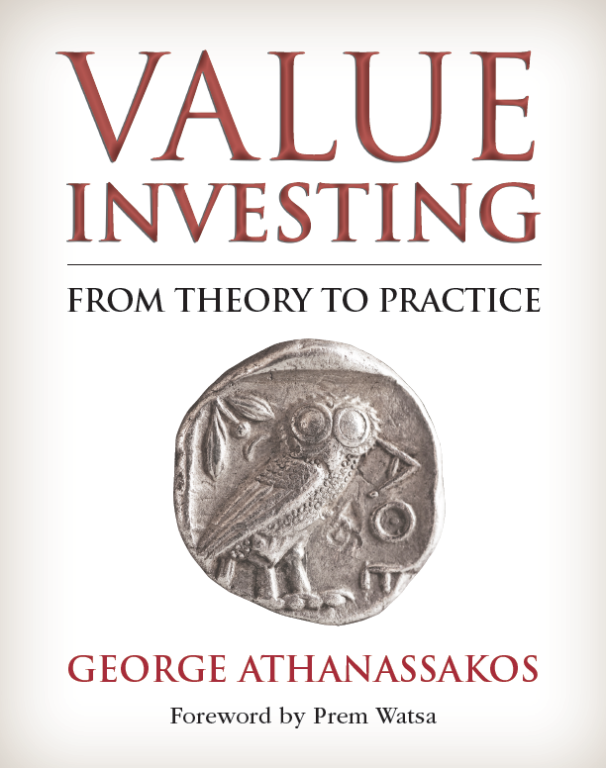Is value investing still relevant? Depends on your values
Everyone loves a good deal, even investors. With market prices dropping, does value investing make sense right now?
Advertisement
Everyone loves a good deal, even investors. With market prices dropping, does value investing make sense right now?

Is it worth all the time and energy to go with a value investing strategy? Recent headlines show that value investing is trending again, so it may be a good time to go over some of the key aspects of value investing. But first…
Value investing is stock picking, specifically looking at the market for investments that are trading at a low price. The idea is that the price is lower than the actual value, and eventually the investors will make money on the sale of the stock at a later time.
Why would a stock be cheap? And why is it temporary? According to value investors, prices diverge significantly from actual value in the short run. Things like human irrationalities and professional conflicts of interest move prices away from fundamentals in the short term, too. In the long run, however, prices gravitate towards the fundamental value. By being patient and buying stocks that trade significantly below their intrinsic value, value investors make money as stock prices eventually correct themselves.
There are two main types of value investing based on the different and successful investing styles of Ben Graham and Warren Buffett.
Graham focussed on the obscure and undesirable assets of companies. If the company went south, investors could sell the assets. Assets are easy to see and understand. While Buffett focusses more on companies with franchise and quality cash flows. It’s easy to comprehend the cash flows that their assets will produce going forward.
Value investors (a.k.a. Ben Graham types) screen stocks by valuation metrics such as price-to-earnings (P/E) ratio, and focus on stocks with low P/Es. Other value investors (Warren Buffett style), however, focus more on quality companies with sustainable franchises.
Value investing involves a three-step process:
A proper valuation model is needed to make educated investment decisions. You need to estimate intrinsic value—which requires detailed knowledge of accounting and some finance—to be able to make educated investments.
Many think value investors just buy low P/E stocks. It’s true that some do buy low P/E stocks, but they do not exclusively buy them. Actually, value investors only buy what’s undervalued.
This misnomer carries over to academic research, too. When you read arguments from scholars over the last few years that say value investing is dead (more so in the U.S. than here in Canada or elsewhere), what actually should be inferred is that investing in a portfolio of low P/E stocks has stopped working. It’s not that value investing has died. (Here’s what P/Es can and can’t tell you about a stock.)
Value investing has evolved over time, even though the core principles are the same: seek out low-valued stocks and earn over the long run. Notwithstanding the specific approach to value investing, it’s important to understand that value investing is not a science, it is rather an art. There is a lot of wiggle room, especially over time.
To successfully invest in low-value stocks, proper analysis and the right process are key. Experience and intuition are very important. Value investors follow a holistic approach to valuation. This involves the following skills:
While screening and valuing stocks are important tasks for value investing, the most critical aspect of the process is deciding whether or not to buy. You can be the best screener, and the best evaluator, but if you panic, get greedy and impatient, you may never be a good investor.
Emotions can cloud judgement and lead to illogical decisions. Humans are not always rational. We can overact, extrapolate and be over optimistic. Then there’s the herd mentality of doing what everyone else is doing.
Institutional investors, on the other hand, face problems of conflicts of interest. Rather than doing the “right thing,” they become concerned more about their jobs and not losing assets under management. That is why doing your homework and thinking independently make a good investor.
Success in investing has little to do with IQ. It is more about a frame of mind on how to make decisions. Successful people are intelligent, but intelligence has nothing to do with their success.
It can. But not for everyone. And to put it in straightforward terms, here’s what leads to investing success.
Value investors (professional managers or DIY investors) attempt to overcome these issues by controlling their emotions. (Some people are naturals and others have to train themselves to remain calm.) And, professional value investors can be exposed to conflicts of interest, but they can overcome that by investing their own wealth alongside their clients.
Having a passion about investing that is in sync with your character. Being a good investor involves patience and discipline. If that’s not in your DNA, it’s better to hire a professional to manage your money. This is what celebrated investor Warren Buffett calls “tap dancing to work”—you should work in a field consistent with your temperament.
It’s important to become an expert outside of narrow ideas of investing. Good value investors use a multidisciplinary approach. They seek to understand the industries they buy into. Value investors spend 80% of their time reading, to understand the world, the market and businesses. (Check out MoneySense’s weekly column “Making sense of the markets”.)
This is not just about learning from investing mistakes, but from the flaws of the companies as well. It’s important to deal with companies that are transparent about their flaws so you can understand their business from the bottom up. (Bottom up means understanding the business, the management, sales, costs, etc., to value a company. A top-down approach is looking at the economy at large.) The best way to avoid mistakes is to understand businesses, review mistakes made and learn from them.
Have sound principles of operations for your approach to value investing that include: a process and a system that leads to success; a proper valuation model; reliable intuition that supports being an independent thinker; a long-term perspective based on research and homework; and, of course, a concentrated portfolio. Unless you invest a lot do not expect to make much.
Continue to develop and work on your character and temperament, and create strategies to train yourself to deal with any human nature weaknesses:
If you do these things, you will not only do well as an investor, but also in life. Patience, discipline and a long-term perspective are traits that define your character. They lead not only to good results with investing but also to a balanced and long life.
As Greek philosopher Heraclitus said, “Character is destiny.”

George Athanassakos is a professor of finance at the Richard Ivey School of Business at Western University in London, Ont. He holds the Ben Graham Chair in Value Investing, and he is the director of the Ben Graham Centre for Value Investing. A detailed discussion of the valuation approach value investors follow can be found in his new book, Value Investing: From Theory to Practice (January 2022).
What do value investors believe in?
17 tips for more successful investing
Why isn’t everyone a value investor?
Share this article Share on Facebook Share on Twitter Share on Linkedin Share on Reddit Share on Email